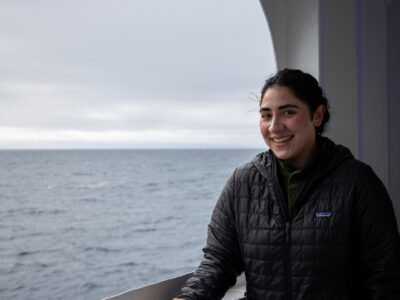
Before airplanes and satellite phones, polar exploration was a more dangerous undertaking than it is now. Many who set out for the frozen ends of the earth did not come back. Norwegian explorer Fridtjof Nansen and British explorer Ernest Shackleton were some of the few who brought their entire crews home safely.
Nansen began his expedition to drift to the North Pole in his ship the Fram in 1893, and Shackleton, headed south, in the Endurance in 1914.
Both of their ships froze into the sea ice and drifted at the whim of the ice pack, and both leaders left their crews at some point.
A new article in American Scientist, “Going With the Floe?,” revisits both voyages from the perspective of modern ocean currents and sea ice drift conditions. The authors conclude that both explorers got lucky in that their period of drifting in the ice was relatively fast, but the expedition outcomes could have been much different: in other years Nansen might have been able to reach the North Pole, and Shackleton’s ship might not have been crushed.

![]() They discuss their piece in a blog hosted by International Polar Year.
They discuss their piece in a blog hosted by International Polar Year.
“In terms of timing they were lucky,” says Stephanie Pfirman, a professor at Barnard College and adjunct scientist at Lamont-Doherty Earth Observatory and lead author of the paper. “But Nansen’s skill in putting the expedition together in the first place set the basic conditions for success.”
“As Nansen wrote in Farthest North, ‘In a struggle with Titans, one must save oneself with cunning and ingenuity if one is to escape from this giant fist that rarely lets go what it has seized.’ “
“Our respect definitely increased [for them]- they were amazingly undaunted by adversity and incredibly resourceful in challenging circumstances,” said study co-author Bruno Tremblay, a professor at McGill University and adjunct scientist at Lamont-Doherty.




[…] Polar Survival a Century Ago: Good Planning, or Just Good Weather? […]